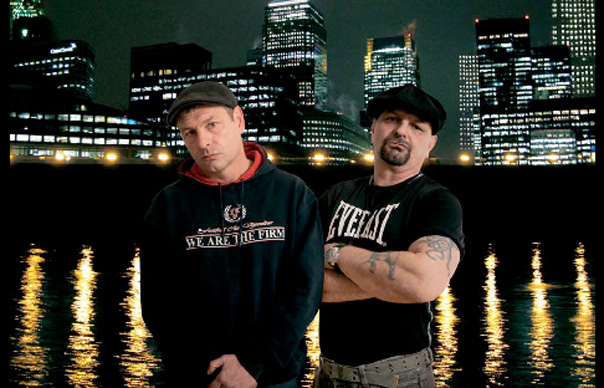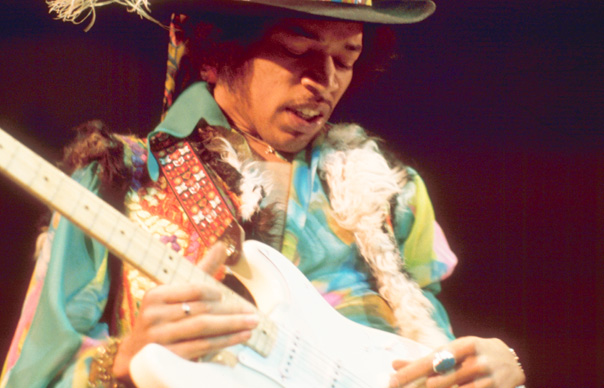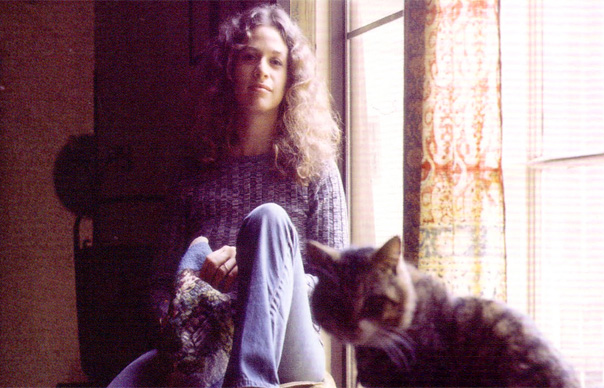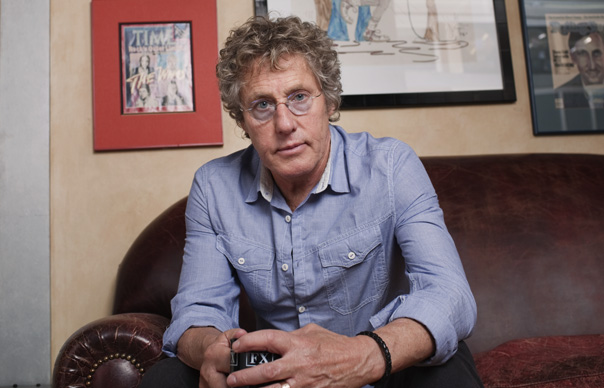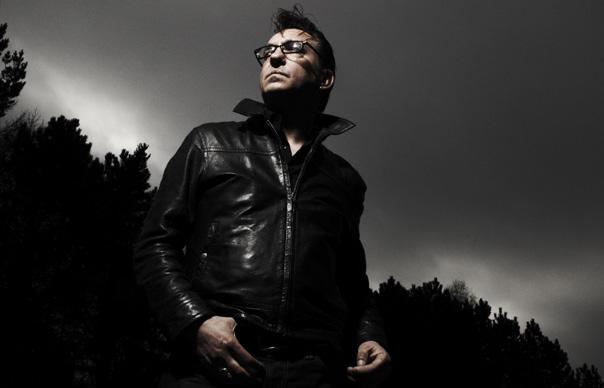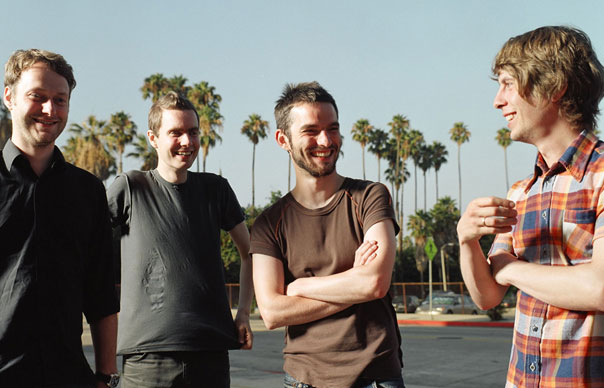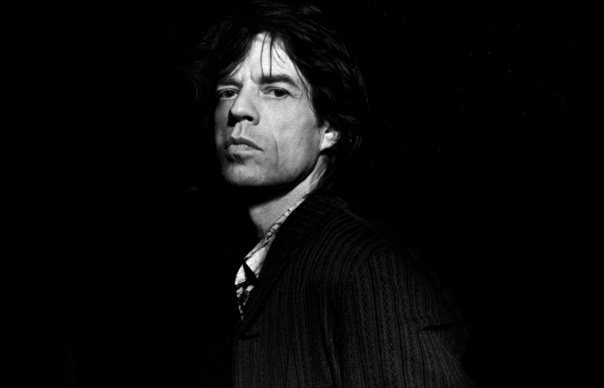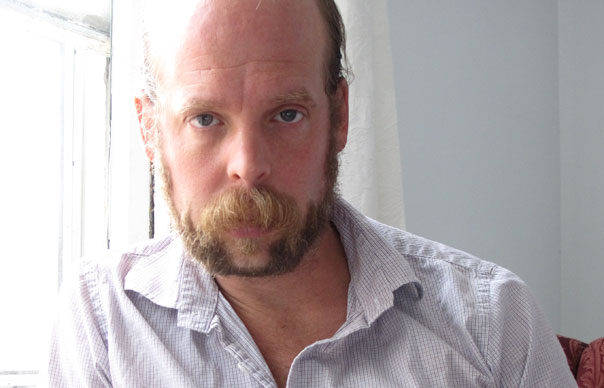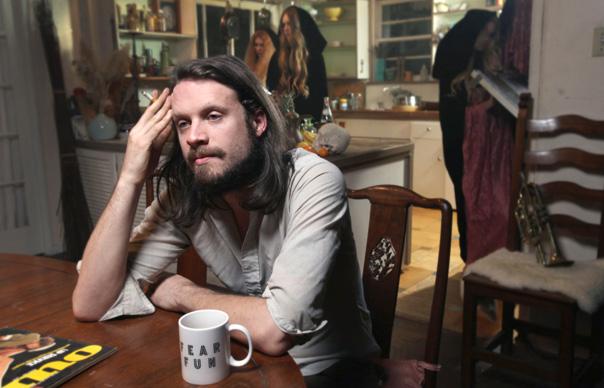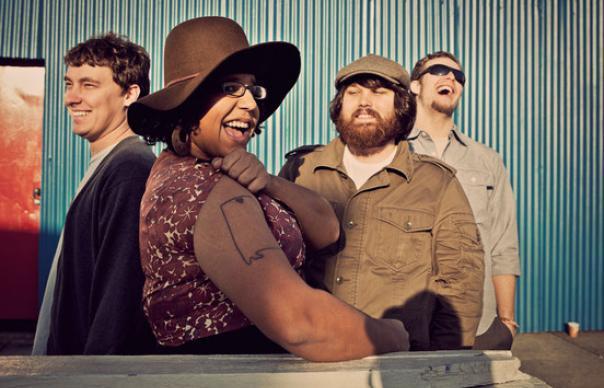To accompany this month’s Uncut (Take 181, June 2012), out now, which features the Bonnie “Prince” Billy/Palace icon fielding questions from fans and musicians, here’s an illuminating Album By Album piece with Will Oldham, talking to Andrew Mueller, from Uncut’s April 2009 issue. “I feel more confident about things now,” he says. “Which frees up space for me to feel insecure about a whole new range of stuff…”
___________________
The Ramshackle Debut
THE PALACE BROTHERS
There Is No-One What Will Take Care Of You (Drag City, 1993)
Lo-fi country blues, coming apparently out of nowhere, There Is… features possibly the most diffident sleeve credits in history: Will Oldham’s collaborators – including Slint’s Todd Brashear, Brian McMahan and Britt Walford – are listed under “Impossible without…” Three more Palace albums – Days In The Wake, Viva Lost Blues and Arise Therefore – follow.
OLDHAM: “I’d been an actor. But when I came out of the cocoon of childhood idealism, I was confronted with the reality that acting was not a viable choice. Then there was a couple of years when I didn’t know what I could do on this earth. And music just started to happen. There came a point when I thought. ‘Aw, shit, I guess I have to go to university,’ and not have dreams. I stayed with some friends in Bloomington, Indiana, for three months, who were in an audio recording programme, who said, ‘Let’s record some songs and send them around, and see if someone wants to make a record,’ and someone did. These songs were written in Bloomington.
“I went back to school, and persuaded a teacher to sponsor the songwriting process as an independent study class. Then Drag City said, ‘When are we going to make this?’ and I told the school I wasn’t coming back. There were six musicians, and everyone played different things, but I didn’t want that to be part of the listening experience. I didn’t know how to credit people, hence the ‘Impossible without’. I wanted the songs to be of interest. It’s shocking how raw it sounds now. That wasn’t deliberate. We played to the best of our abilities on the best equipment we had.”
The Fraught, Edgy Fifth
WILL OLDHAM
Joya (Drag City/Domino, 1997)
The Palace conceit discarded, Oldham ventures out under his own name, retaining a countryish sound while lyrically visiting forbidding depths. Later reissues are credited to Bonnie “Prince” Billy.
“There was no thought about the name. I just thought, it’s probably not a good idea to put out a record with no name on it, but I can’t think of another name right now. So, we’ll use Will Oldham. That was it. Joya was many years in the works, then three days of recording and mixing. It was made in three days because it was a last, desperate effort before resigning myself to not even trying to make records anymore. It was so confusing, so hard. I’d given up.
“It was exciting and fulfilling to make records, but the reality of a musician’s life was not something I could get with. I felt like it was pulling me away from the life I valued, with loved ones, and not having to be in rooms full of people watching you work. And making records outside the system can be disorienting. You’re looking at this thing, and thinking, ‘Well, this looks like a record,’ and realising that you only share that opinion with a very small number of people. Everything that was supposed to be a reward for being a musician – shows, doing interviews – I hated. I wasn’t ready to be a working musician. Dan [Koretzky] from Drag City and Rian [Murphy] kind of forced things along with the aid of pharmaceutical uppers, and we knocked it out as fast as humanly possible.”
The Undisputed Classic
BONNIE “PRINCE” BILLY
I See A Darkness (Drag City/Domino, 1999)
A new stage name, and Oldham gets his act properly together. This is a glorious, gloomy masterpiece of gothic country, and Johnny Cash pays the title track the supreme compliment, recording it for 2000’s American III: Solitary Man with Oldham himself on harmony vocals…
“I realised that I had to learn to approach things with more levity, and more distance, and accept the givens of what it is to make a record – to have a name, for example. Bonnie ‘Prince’ Billy seemed like a good name. I thought of it as a bastardisation of the Nat ‘King’ Cole tradition, then someone pointed out that it’s also a reversal of Billy The Kid’s real name, William Bonney, which must have been somewhere in the back of my head at the time. I also realised that I can write songs that have… bridges! Make ’em songs. If I’m gonna make records, I should fucking do it right. I’d been thinking of songwriting as somewhat of a craft, but now I thought I should treat it like one.
“I was flying back from Australia when I started thinking about this idea of Bonnie ‘Prince’ Billy, and I started writing three of the songs on the flight. I didn’t think the material was necessarily a leap forward, but it was different. Rather than trying to fit square pegs into round holes, why not see what proper penetration feels like – that’s supposed to feel good, let’s see if it’s true.
“It probably will sound strange, and conceited, but when I heard about the Cash cover, it felt like… justice. I thought: ‘Fuck, yeah.’ It didn’t sound weird to me, it sounded like: that’s a good idea. I found out because a friend of mine was talking to Rick Rubin, and Rick told him they’d cut the song. My friend called and told me: ‘Johnny Cash has recorded your song.’ I met Rick when he came to a show, and convinced him to let me come along to a session. I knew that Cash was recording a lot of songs, and I didn’t necessarily think the song was going to make the final cut – and possibly it wouldn’t have if I hadn’t said I’d like to come and meet Johnny and June.
“I flew out to California, and Johnny Cash just said, ‘Okay, let’s work on that song.’ At that point, it was all about maintaining a level head and pretending to myself that I believed what was happening: ‘Think about this later, right now, just act and react.’ There was so much energy in suppressing my feelings that I can still pull up, and live off, the emotions of that day.”
The Pop-Sheened Seventh
BONNIE “PRINCE” BILLY
Ease Down The Road (Palace/Domino, 2001)
Previous collaborator and Slint/Zwan guitarist David Pajo is enlisted as co-producer. Lush pop sounds suit Oldham’s most whimsical songs so far, including much-loved “After I Made Love To You”. Filmmaker Harmony Korine appears as a backing vocalist.
“We try to make every record as presentable as possible. Growing up, there were definitely artists whose records became arguably more listenable, and it wasn’t always a good thing. So when people say that about one of my records, I think, ‘Uh-oh. Shit.’ But I trust that our intentions going in are always the same: to try and make the best record possible.
“I asked Pajo to officially form a production team, which meant that for the first time there was someone there from the beginning of tracking to the end of mixing, making joint decisions. I knew that would make a difference, that it would have a smoothness to it that a record like I See A Darkness didn’t, because that’s Dave’s tendency, to put a certain gloss on things.
“’After I Made Love To You’ is one of my favourite songs I’ve written. I like how it moves. I don’t think the humour in my work gets overlooked, no – I think the audience is pretty smart and attentive.”
The Nashville Special
BONNIE “PRINCE” BILLY
Sings Greatest Palace Music (Drag City/Domino, 2004)
Oldham revisits his own Palace back catalogue, Billy Sherrill style, with Lambchop producer Mark Nevers and the cream of Nashville sessioneers. Provokes baffling invective from precious Palace fans who seem to think that Oldham has only done it to annoy them…
“I was very surprised by that. I went into it with utter joy, glee and celebration. The idea came from making [2003’s] Master And Everyone in Nashville with Mark. He’d spent a long time working inside the country hit-making machine, so he was able to call on these incredible musicians, who were revelations: they’d do things and I’d just think, ‘Oh. My. God.’ Mark said we could make a whole record like this – get the A-list old-timers, who’d probably love it, because they hate the shit they’re playing on now, and they don’t get to play with each other that often.
“At first, I put together a list of covers – Elton John, REO Speedwagon, Meat Loaf – thinking of taking these songs which are kind of guilty pleasures and make them not guilty pleasures, remind people that they’re good. Then I thought I should do something more practical – bring the Palace songs to a Bonnie ‘Prince’ Billy audience. I made demos for the band, they’d listen to them, say ‘Okay,’ and we’d record them, full band live.
“There’s a lot of Billy Sherrill-style playing, but some of Billy Sherrill’s production techniques are still a little sappy and hard to listen to, for me. But the musicians he worked with, including a couple of the guys who played on this, are great. It was like I’d walked into Oz. The joy of it was feeling like I’d put in this work as a singer, player and writer, and – not to put myself on a level with these people – I felt comfortable with them. They gave the songs energy and respect. It was also one of the amazing things about working with Johnny Cash – he had no conceit. It was just: we’re making music together. That’s what we do.”
The Wildcard
BONNIE “PRINCE” BILLY & MATT SWEENEY
Superwolf (Drag City/Domino, 2005)
Oldham forms a one-off double act with guitarist Sweeney, late of Chavez, Guided By Voices and Zwan, among others. Unsurprisingly heavy on the guitars and utterly unfettered in its lyrics: it’s the least Oldham-like of Oldham’s albums.
“We decided to make a record where he would write the music and I would write the words. I sent him lots of lyrics that I didn’t have music for. In the recording, it was basically my brother Paul engineering while we did almost everything else – arguing about how things should sound, each constantly yielding to the other, like, ‘Okay, you can have that vocal part if I can put this guitar on.’ Really pushing it with each other, but it was a fully collaborative record, in every way.
“It was liberating to hear someone else create melodies for the words – it taught me something about the way my words can come across. The longer songs, like ‘My Home Is The Sea’ and ‘Goat And Ram’, I’m sending him long, rhythmically disjointed lyrics, and it was his challenge to create parts that fit these words that don’t have verses and choruses. And it was a great and fun challenge for him, and he came back with incredible songs. If it felt awkward, I’d fight it, but he’d insist, and we’d end up somewhere in between if I couldn’t time it the way he had it in his head. With collaborators, I’m just looking for people who are willing and able to contribute, to listen, with energy and some kind of sympathetic ear and voice.”
Icelandic Isolation
BONNIE “PRINCE” BILLY
The Letting Go (Drag City/Domino, 2006)
Oldham holes up in Reykjavik with Björk collaborator Valgeir Sigurðsson, and delivers an appropriately bleak and wintry collection of laments, abetted by Faun Fables vocalist Dawn McCarthy. The degree to which the landscape informs the work is discernible in those portraits of Iceland’s rugged tundra on the cover…
“Actually, that’s Hawaii. Eastern Oahu. Another volcanic island entirely. I’d met Björk through Harmony Korine, and she asked if I’d be interested in opening some shows for her. During that time, I met Valgeir Sigurðsson, who’d done a lot of her recording.
“I was in Reykjavik about a month, in winter. For the brief amount of time that I’m making a record, I like to be cut off from the world, and I like the other musicians to do that, and be happy about it – for all of us to be away from our homes, so you don’t feel guilty if you work till 2am, and if your pipes burst at home, you don’t even know. It seemed like Iceland would be good for that, especially in winter. It’s dark outside, and we don’t know anyone, but this house is warm, the food’s good, and we like playing together.
“We had this completely magical woman on the album, Dawn McCarthy, who came to Iceland and wanted to know everything about Icelandic folklore – she and Valgeir were our conduits to where we were. When we finished the basic tracking, we went to Valgeir’s dad’s cabin – a little wooden thing in this stark, volcanic valley in the middle of the Icelandic winter. He stir-fried some whale meat, and we sat and ate it and listened to what we’d done.”
And Now, Back To The Country…
BONNIE “PRINCE” BILLY
Beware (Drag City/Domino, 2009)
The pedal steel is back, on Oldham’s most explicitly country album in a long time. Riddled with traces of the classics, notably Merle Haggard’s late-’60s peak and Gene Clark’s cosmic country epic, No Other. Also echoes of contemporaries such as Ryan Adams and Calexico.
“We recorded this one in Chicago, at a studio called Engine. Emmett Kelly, who played on The Letting Go and Lie Down In The Light is on it. Josh Abrams played double bass. There’s a drummer called Michael Zerang, primarily a free jazz drummer. And then Jennifer Hutt playing violin – she’s from Baltimore, but lives in Paris. That was the core group, and we brought in pedal steel, flute, cornet, banjo.
“There is a country influence on the writing, yes. There’s a song on there called ‘Heart’s Arms’, which was definitely written under the influence of [Doug] Dillard & [Gene] Clark. ‘I Don’t Belong To Anyone’ is very obviously Merle Haggard-influenced. Maybe he’ll cover it one day. On ‘You Are Lost’, I was trying to write a big Kenny Chesney kind of song. The rest is very folk, very Elvis, very Great American Songbook.
“I don’t feel like I have the perspective to measure one record against another, but your previous experience does inform the making of the record. It’s more fun than not fun, now. Every record is still a little bit traumatic at some points in the session – and a lot traumatic at certain points in the session. It’s sometimes tedious, sometimes difficult, but it’s more often challenging, and rewarding, and one of the best ways to spend time with people.”


